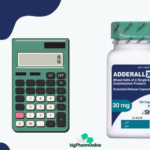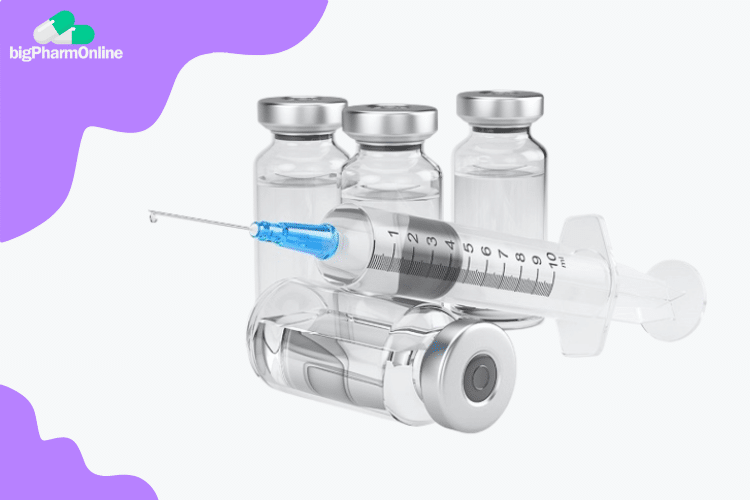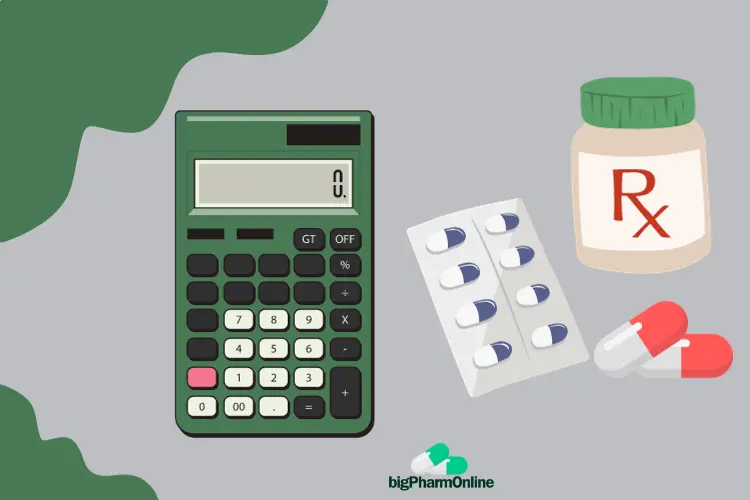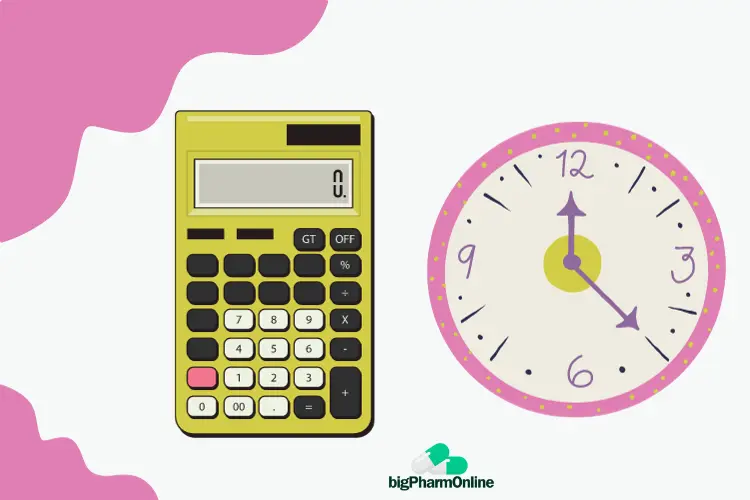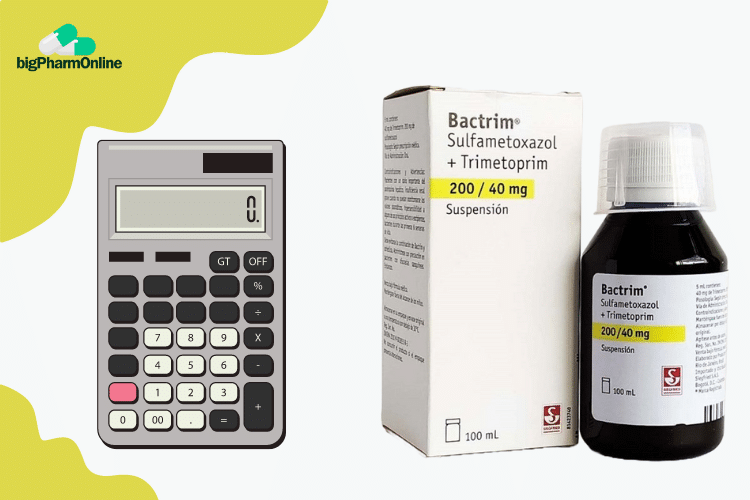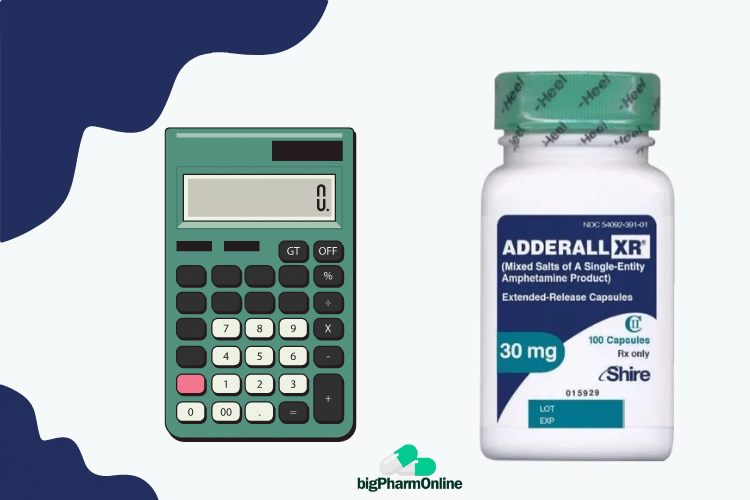Accutane (Isotretinoin) Dosage Calculator
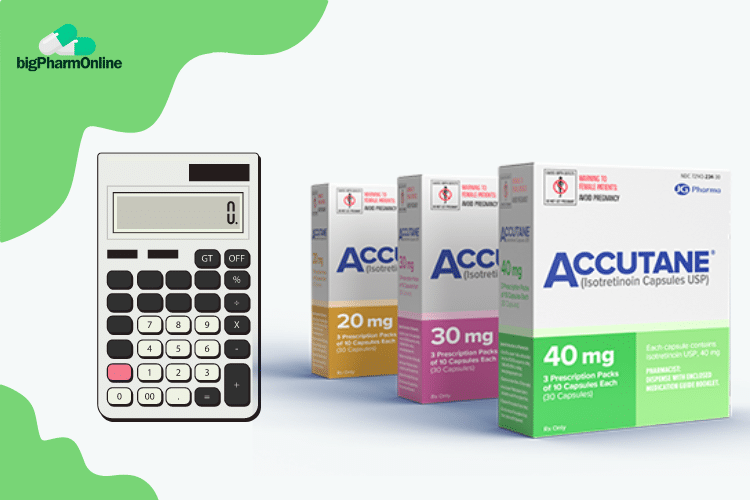
The Isotretinoin dose calculator or Accutane dosage calculator is a tool designed to help you calculate the correct recommended doses of isotretinoin to treat nodular acne. It is very easy to use and allows you to calculate the accutane dose based on body weight in kilograms.
How To Use This Accutane Dosage Calculator
- Enter the Age of the patient in years. Isotretinoin is only allowed for use in patients 12 years and above.
- Enter the Weight of the patient in kilograms.
- Select the Dosage Form of your Isotretinoin. The calculator makes provision for only two dosage forms which are conventional tablets and micronised caps. The doses are different for each dosage form, so be sure to choose correctly.
- Select the Indication for which the drug is prescribed.
- Click the Calculate Dose button to obtain your calculated recommended dose of Isotretinoin (Accutane) based on the information provided.
The Dosages Used By This Isotretinoin Dose Calculator
The dose of isotretinoin used by this calculator is based on the generally accepted dosages as shown below.
- Micronized capsules: 0.4-0.8 mg/kg per day given in two divided doses (i.e. twice a day) for 15-20 weeks.
- Conventional capsules: 0.5-1 mg/kg per day given in two divided doses (i.e. twice a day) for 15-20 weeks.
Note that the calculated doses are indicated only for severe, recalcitrant nodular acne in nonpregnant patients who are unresponsive to other acne therapy, including the use of systemic antibiotics
Accutane (Isotretinoin) Dosage Calculator
IMPORTANT: Please note that this calculator is strictly for information purpose only. It should NOT be considered as a substitute for any professional medical service, NOR as a substitute for clinical judgement.
What is isotretinoin (Accutane)?
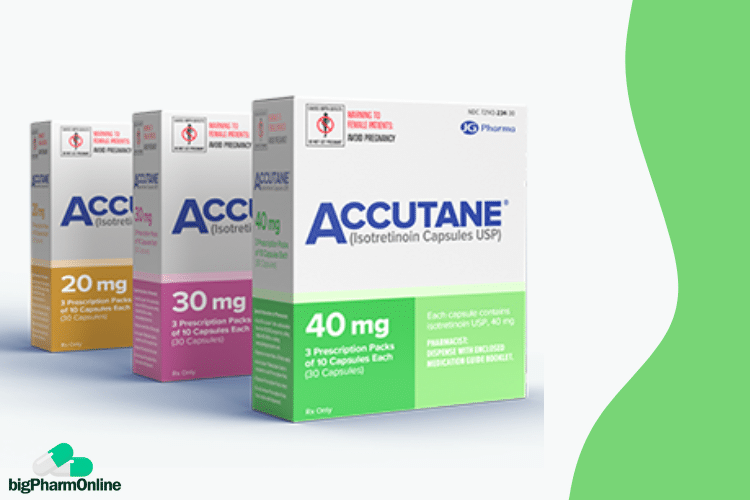
Isotretinoin is a prescription medication used to treat severe cases of acne that have not responded to other treatments like oral antibiotics. It is sometimes referred to by its brand name, Accutane®.
Accutane was the original brand name version of isotretinoin sold in the United States before the introduction of generic equivalents. It represents one of the most effective treatments currently available for acne as it can help achieve long-term remission of acne symptoms.
How Does Accutane Work?
Accutane (isotretinoin) works by preventing sebum production on multiple levels:
- It shrinks the sebaceous (oil) glands in the skin, thereby reducing the amount of oil released onto the surface of the skin from these glands. This is why it causes skin dryness as a side effect.
- It also increases skin cell turnover as well as the shedding of dead skin cells. This helps pores stay unclogged.
- It has anti-inflammatory properties, reducing redness and swelling.
- It diminishes bacteria like Propionibacterium acnes that can contribute to flare-ups.
This multipronged approach helps treat existing acne breakouts while preventing new ones from forming. Most people see initial improvements after about one month on Accutane. Maximum clearance is typically achieved by 4 to 6 months, resulting in long-term remission for many.
How To Reduce The Side Effects Of Isotretinoin?
While isotretinoin is very effective for treating acne, it does come with potential side effects due to how it impacts oil production systemically. Some strategies to help reduce side effects include:
- Take isotretinoin with food rather than on an empty stomach, as this seems to help avoid some gastrointestinal issues.
- Use lip balm frequently as isotretinoin commonly causes dry lips and chapping.
- Apply moisturizer regularly to prevent the skin-drying effect of this drug.
- Avoid waxing hair removal procedures during treatment because it could rip the skin.
- Take care when being in the sun, as skin sensitivity increases while on isotretinoin.
- Have bloodwork done at monthly visits to monitor for changes
- Practice contraception diligently if female, as birth defects can occur if pregnant while taking this teratogenic medication
Reporting any concerning or intolerable side effects to your prescribing dermatologist promptly can allow for dosage adjustments if warranted. Staying well-hydrated and using over-the-counter comfort measures helps most people tolerate this medication quite well.
How to manage your therapy with Accutane?
Managing isotretinoin therapy properly promotes the best results while minimizing unnecessary risks. Recommendations include:
- Take pills as directed – Take isotretinoin daily with food unless instructed otherwise by your provider. Skipping doses can diminish efficacy.
- Monthly pregnancy tests – Females need pregnancy tests before starting isotretinoin and monthly during treatment. This is necessary to prevent severe harm to fetal development should you get pregnant while on it. Strict contraception is essential.
- Routine blood monitoring – Complete all necessary bloodwork as ordered by your dermatologist to check liver enzymes, cholesterol, and triglyceride levels since isotretinoin can impact them.
- Moisturize liberally – Keep skin hydrated with moisturizers like CeraVe or Cetaphil, and use lip balms like Aquaphor as needed to ease symptoms of dryness.
- Always wear sunscreen – Apply SPF 30 or higher sunscreen daily before going outdoors, even if not sunny. This drug causes increased sun sensitivity as a side effect.
- Prompt side effect reporting – Notify your dermatologist about any concerning symptoms without delay so proper adjustments can be made if needed.
Frequently Asked Questions
Is isotretinoin an antibiotic?
No, isotretinoin is not an antibiotic. While antibiotics can help some cases of inflammatory acne by reducing bacteria like P. acnes on the skin, isotretinoin works very differently.
It actually changes how the oil glands work to reduce overall sebum production and alters how skin cells develop to keep pores unclogged.
When does isotretinoin start to work?
Isotretinoin starts to work between 7 to 10 days. But most dermatologists will have patients remain on the drug for at least 15 to 20 weeks to achieve the best results.
Initial clearing may be noticeable after about 1 month. Maximum improvement typically occurs around month 4 or 5, with continued enhancement over the following month or two.
How long do you take isotretinoin?
The initial recommended treatment period with isotretinoin is usually about 15 to 20 weeks. Sometimes shorter 10 to 12-week courses are used for milder cases of acne.
For more severe acne with cysts and nodules, a longer 6-month course offers the highest chance of achieving clearance while minimizing the risk of relapse down the line.
Is isotretinoin Accutane?
Yes, isotretinoin is the generic active ingredient in Accutane®, which was the original brand-name version. Now multiple companies make generic isotretinoin capsules since the Accutane branding rights expired.
But they all contain essentially the same oral acne medication. Over the years isotretinoin has simply become the common name used for all branded and generic versions.
Is 40 mg of accutane a high dose?
The typical dosing range for isotretinoin is from 0.5 to 1.0 mg per kg of body weight per day. Doses above 1 mg per kg per day would usually be considered high dose.
For an average adult, a dose of 40 mg daily would usually not be characterized as a high isotretinoin dose on its own. However, in smaller or lightweight individuals, a 40mg daily dose could potentially exceed that 1 mg/kg upper threshold, straying into high dose territory.
So whether 40 mg is defined as “high dose” depends more on the person’s baseline body weight than the absolute number.
What is considered a high dose of Accutane?
Doses higher than 1 mg per kg of body weight per day are generally defined as high dose isotretinoin therapy. For example, someone who weighs 150 pounds taking more than a 100 mg isotretinoin pill daily would be on a relatively high dose.
Higher doses increase the risks of side effects but do not typically proportionally increase efficacy. Most studies have found maximum acne-clearing benefits are achieved around that 0.5 to 1 mg/kg/day range already.
What is accutane cumulative dose?
The cumulative dose is the total amount of isotretinoin a patient takes over their entire treatment period. It represents the sum of all daily doses in relation to body weight (mg/kg).
Research indicates people normally need a cumulative dose between 120-150 mg/kg to maximize acne clearance while on the medication and reduce the chances of relapse after stopping. Calculating this helps customize the duration of therapy.
How to calculate Accutane cumulative dose?
To determine cumulative dose, first calculate your total intake in milligrams. Then multiply your dose (mg/day) by the number of days you took that dosage.
Then add your total mg amount taken. Next, divide that by your weight in kg to determine mg/kg.
For example – if you weigh 150 lbs (68 kg) and took 60mg daily for 150 days. That is 9,000mg in total. 9,000mg divided by 68kg = 132mg/kg. Your cumulative dose is therefore 132 mg/kg.
What is the maximum dose of accutane per day
The maximum recommended dose of isotretinoin (Accutane) per day is 1 mg per kg of body weight.
So for example:
- For a person weighing 150 lbs (68 kg), the maximum Accutane dose per day would be 68 mg.
- For a person weighing 200 lbs (91 kg), the maximum daily dose would be 91 mg.
Taking more than the maximum recommended 1 mg/kg/day dosage can increase the risk of side effects. It hasn’t also been shown to provide any additional therapeutic benefit in treating severe acne.
Higher single doses above 1 mg/kg have been used in certain situations, sometimes as high as 2 mg/kg/day. However, doses in that upper range are typically only continued short-term and supported by very close monitoring for adverse reactions.
Staying at or below the 1 mg/kg threshold daily provides the best balance of safety and efficacy for most patients using isotretinoin for severe acne management.
References
- Medscape: isotretinoin (Rx)
- Pile HD, Sadiq NM. Isotretinoin. [Updated 2023 May 1]. In: StatPearls [Internet]. Treasure Island (FL): StatPearls Publishing; 2023 Jan-.
- American Academy of Dermatology Association. ISOTRETINOIN: OVERVIEW
- Rademaker M. Making sense of the effects of the cumulative dose of isotretinoin in acne vulgaris. Int J Dermatol. 2016 May;55(5):518-23. doi: 10.1111/ijd.12942. Epub 2015 Oct 15. PMID: 26471145.
Was this helpful?
About the Pharmacist
Pharm. John Mark (BPharm) is a licensed pharmacist with over 6 years of experience spanning clinical, community, and hospital pharmacy settings.
His wealth of experience and expertise makes him your knowledgeable and go-to source for all pharmacy and medication-related questions.



